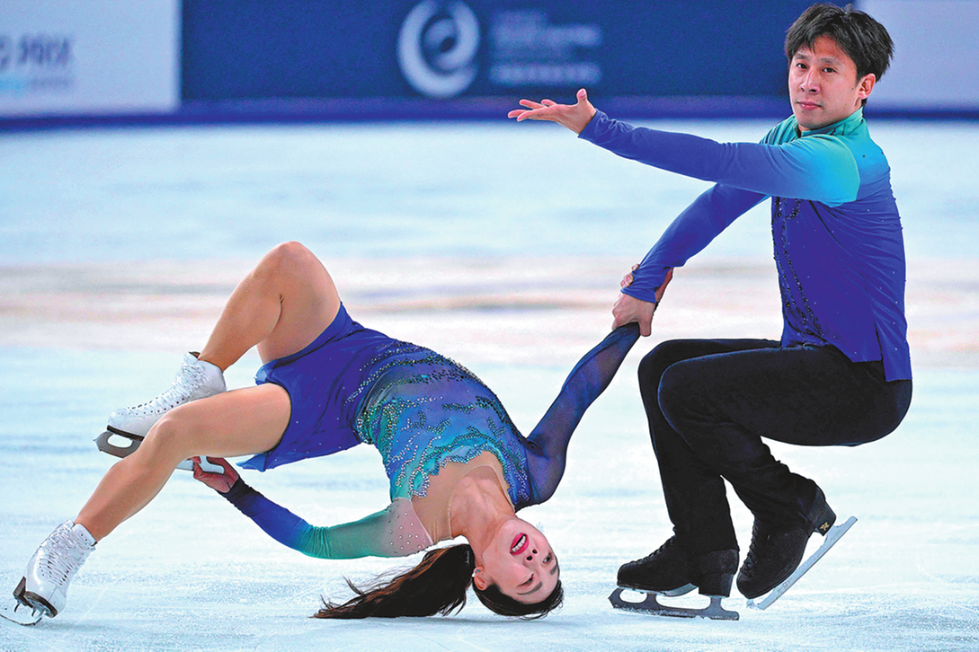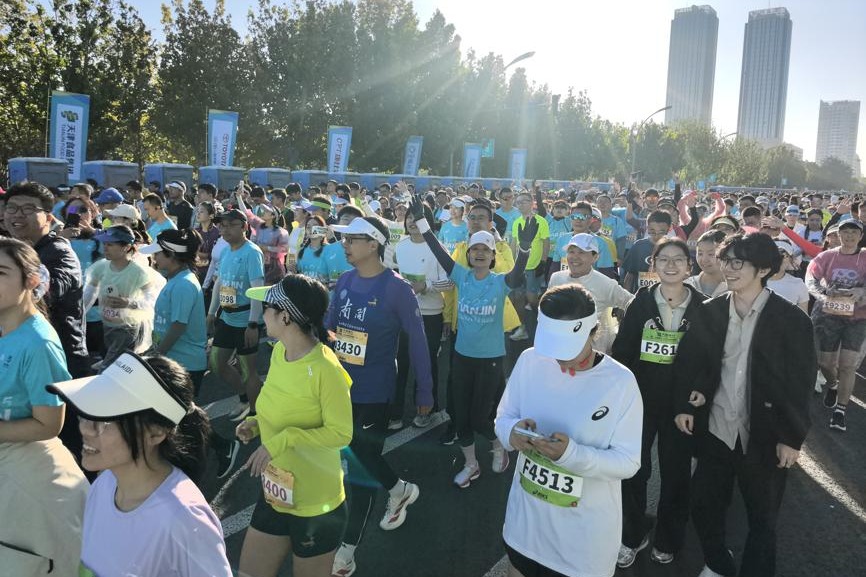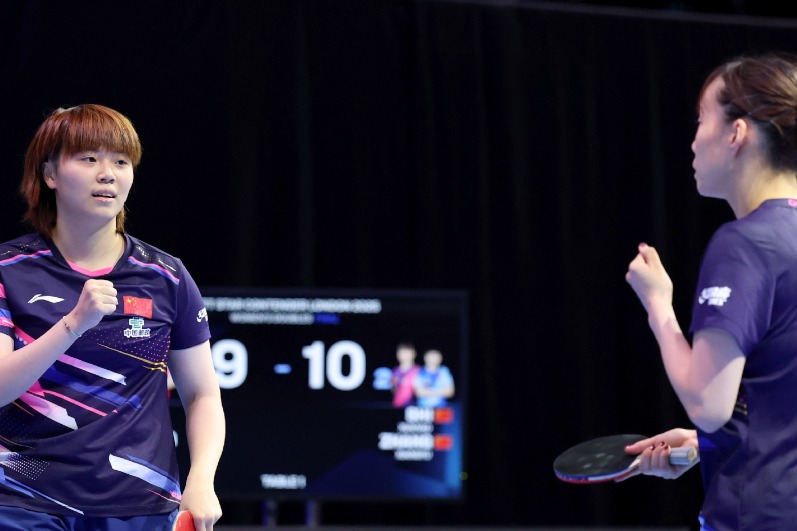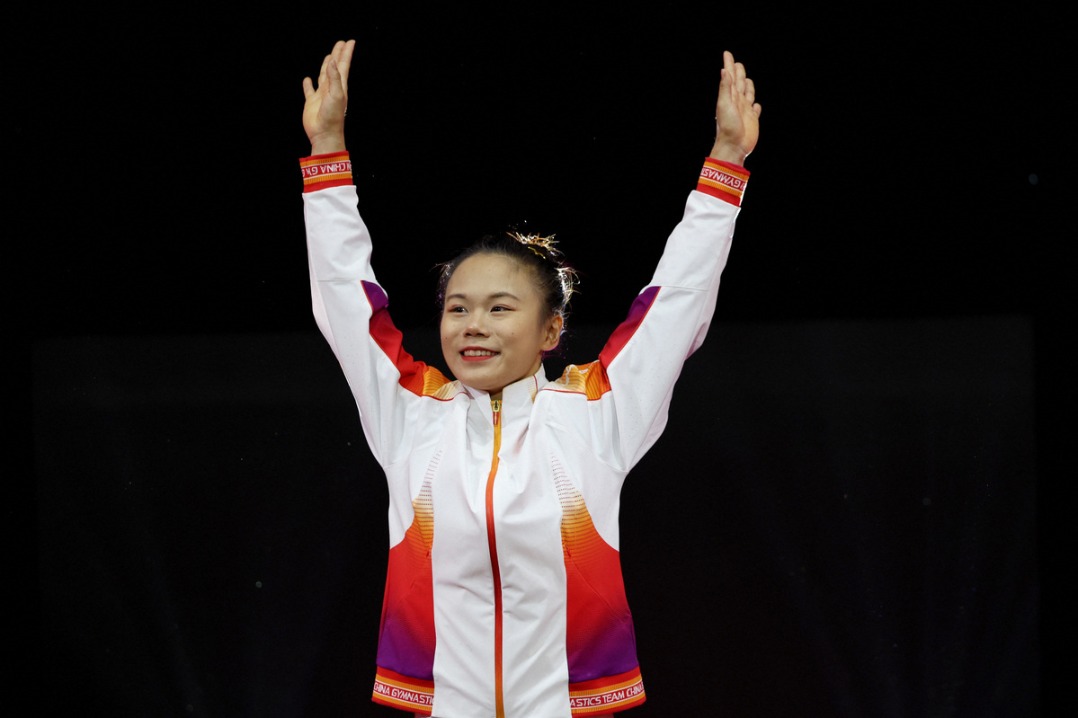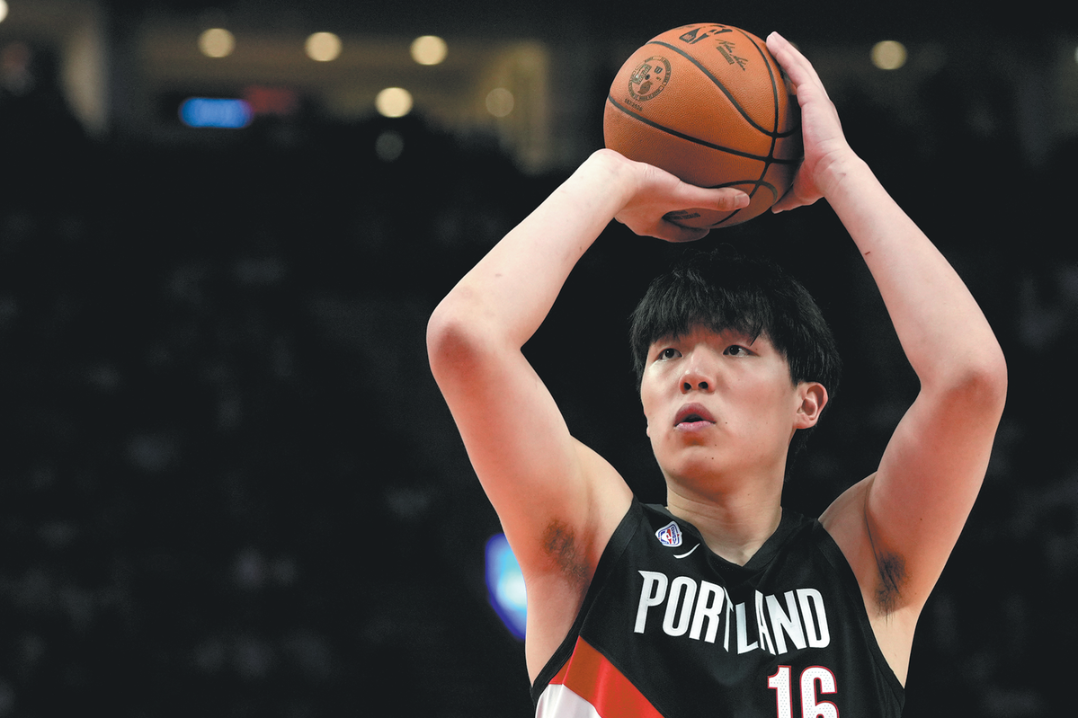Schooling future pros

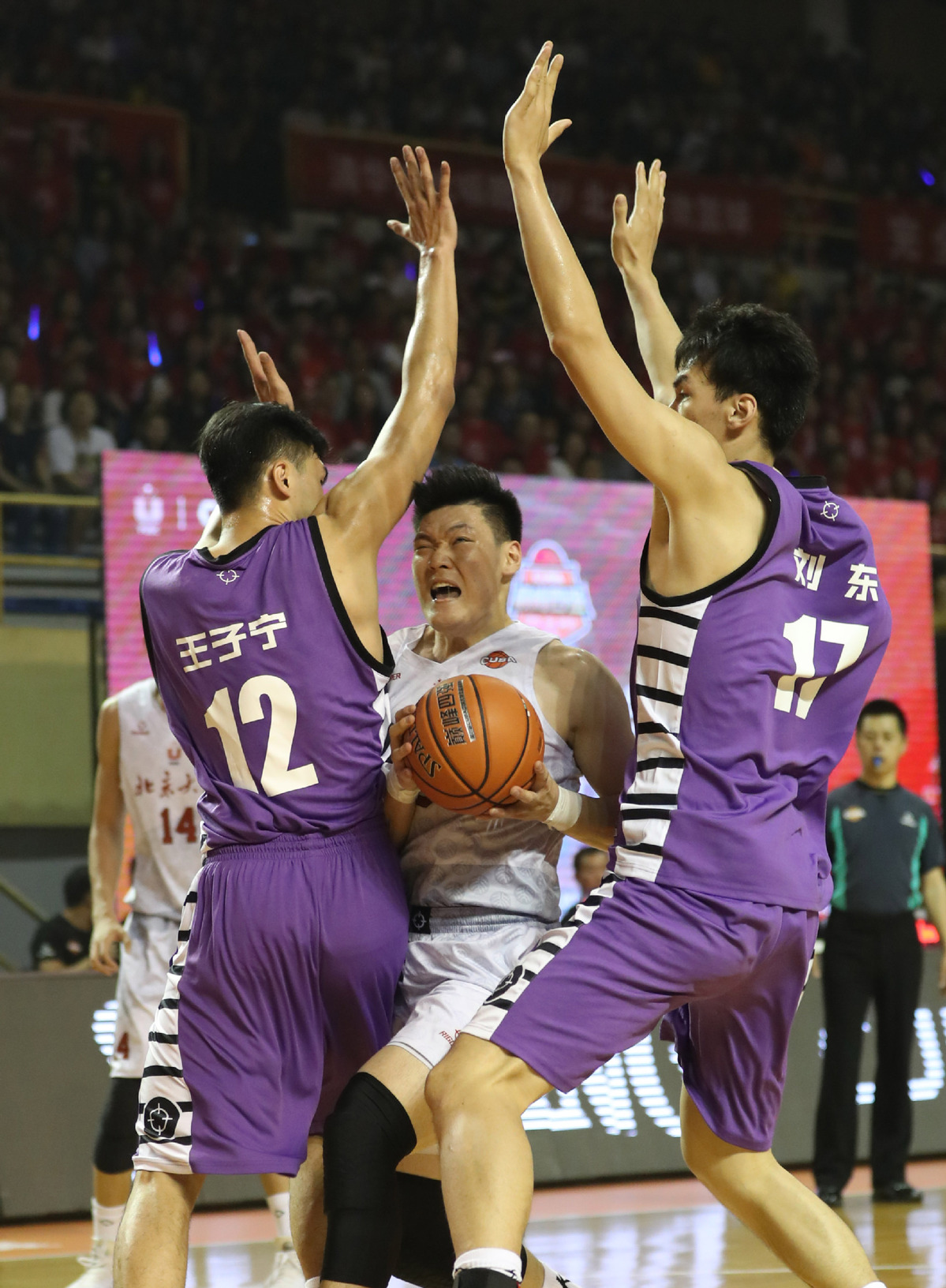
China's collegiate league wants to serve as pipeline
After wrapping up an upgraded season on a high note, China's collegiate basketball league has raised hopes of building a strong campus-to-pro talent pipeline.
The Chinese University Basketball Association (CUBA) is aiming to grow the same kind of player crop as US colleges, long the main building block of the NBA.
That ambition was highlighted by the symbolic moment when NBA legend Yao Ming, chairman of the Chinese Basketball Association, awarded the final MVP trophy to student athlete Wang Shaojie after the forward led Peking University to an 84-77 victory over crosstown rival Tsinghua University to claim the school's third straight CUBA title at the packed University Students' Gymnasium in Beijing last Sunday.
It was the first time the two renowned schools met in the CUBA final in the tournament's 21-year history, attracting a capacity crowd at the 4,200-seat arena.
The trophy handover from Yao to Wang, a junior student who scored 22 points and 16 rebounds for PKU, symbolized great expectations from the sport's top echelon for the school system to nurture more talent.
"It was a strong message that PKU and Tsinghua, the top two academic-strong universities, met in the CUBA national final," said Zhang Jian, head coach of PKU.
"It will definitely inspire the rest of the country's elite universities to invest more and concentrate more on basketball development on campus."
Wang's 6-foot-9 wingspan, athleticism and versatile skills have drawn considerable attention from domestic pro scouts, but the 23-year-old said he wants to finish his undergraduate studies at PKU before considering any opportunities to play in the CBA.
The CBA has ramped up efforts to bring in more school-cultivated talent by reforming a draft system initiated by Yao, who took over as league chairman in early 2017.
A record number of nine CUBA players signed up for the 2018 CBA Draft, the first edition after a reform to extend rookie contracts from one to two years at an increased maximum annual salary of 500,000 yuan ($72,000).
Wang's senior teammate Wan Shengwei, the 2017-18 CUBA final MVP, was drafted in the second round (38th overall) by nine-time CBA champion Guangdong Southern Tigers and impressed fans by playing some quality minutes off the bench in his rookie pro campaign.
The quality of collegiate talent was put on display during the CBA All-Star Weekend in January, when a CUBA select team led by Wang defeated a youth team comprised of CBA reserves 90-88 in the Rising Star Challenge.
Without a sound collegiate system, CBA clubs have traditionally relied on players drafted from local sports school in the State-run system.
"I think eventually players like us who are improving our game in schools while balancing academic study will stand out more and more as bright professional prospects," said Wang.
"The CBA is the ultimate goal for every college player, but we still have a long way to go to match the competitiveness of the elite level."
CUBA, which was founded by the Federation of University Sports of China in 1998, entered a new era last October when Alisports, a subsidiary of internet giant Alibaba, acquired the exclusive operation rights of the league for seven years at a price of 1 billion yuan ($144 million).
Supported by the FUSC, Alisports introduced a home-and-away competition format, starting from the regional preliminaries in 32 cities, and expanded the knockout stage from 24 entries to 32.
It also facilitated the competition with pro-caliber broadcasting, marketing and media promotion.
Live-streaming of games on Alibaba-owned platform Youku Sports and basketball-themed reality shows featuring star college players have drawn impressive viewership online.
The revamped CUBA, including all men's and women's competitions, featured 1,600 teams in its first season after the reform.
"It's pretty exciting playing in the new home-and-road system instead of competing in a tournament staged by a neutral host," said Guo Jian, starting center for Tsinghua and a senior majoring in business management.
"The support from your schoolmates playing in your own gym and the buzz created by the game on campus is something truly inspirational," he added.
Alisports, which signed a partnership with the NCAA's Pac-12 conference in October 2017 to stage exhibition games in China, vowed to continue upgrading CUBA with expertise and experience learned from the US collegiate league.
"We will further popularize CUBA following the example of the NCAA," said Wei Quanmin, vice-president of Alisports.
"Our goal is to make it a basketball talent cradle while building a healthy business circle for the league to stand on its own."
Most Popular
- 2025 BRI International Climbing Masters concludes in Meishan
- As Liverpool's slide continues, Man United finally finds its rhythm
- Communities kick out the trauma in war-torn Sudan
- Bowled over: Canada falls back in love with cricket
- An ice warm-up, but work still to be done
- Eco-friendly Tianjin Marathon attracts over 33k runners from 39 countries
















